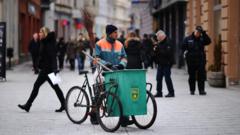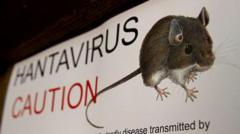In Sarajevo it is, once again, the Year of the Rat. Residents of Bosnia and Herzegovina's capital have taken to social media, posting images of rats swimming in the Miljacka river, a troubling sign of the city's growing rodent problem. Complaints about overflowing rubbish bins and legally dumped waste have come in, with many expressing frustration over authorities failing to remove dead animals from public spaces, including playgrounds.
The unhygienic conditions have fostered a thriving rat population, leading to a rise in rat-borne diseases. In just one day, the city's largest hospital reported multiple cases of leptospirosis, often known as rat fever. This serious illness primarily spreads through water or soil contaminated with rodent waste, leading to severe symptoms ranging from headaches to life-threatening complications like kidney failure.
In response to the crisis, local authorities in Sarajevo have declared an epidemic, which has enabled the implementation of emergency measures, including an extensive clean-up operation. Municipal workers with disinfectants are now active in public spaces, and additional waste collection services are being arranged. Schools have also been instructed to maintain cleanliness around playgrounds and monitor for rat presence.
This proactive approach is a stark contrast to the previous two years, which saw no measures taken against pest control due to complications with municipal contracts. Officials attribute the current situation to an accumulation of neglect in maintaining public hygiene. Sarajevo Canton Health Minister, Enis Hasanovic, has termed the issue "a communal crisis," highlighting the failure of local services to uphold essential sanitation.
Concerns linger, particularly from former health officials who warn that the thriving rat population may lead to more severe health threats, including the hantavirus. Fortunately, no severe cases of leptospirosis have been reported thus far, and timely action may help avert further complications.

















